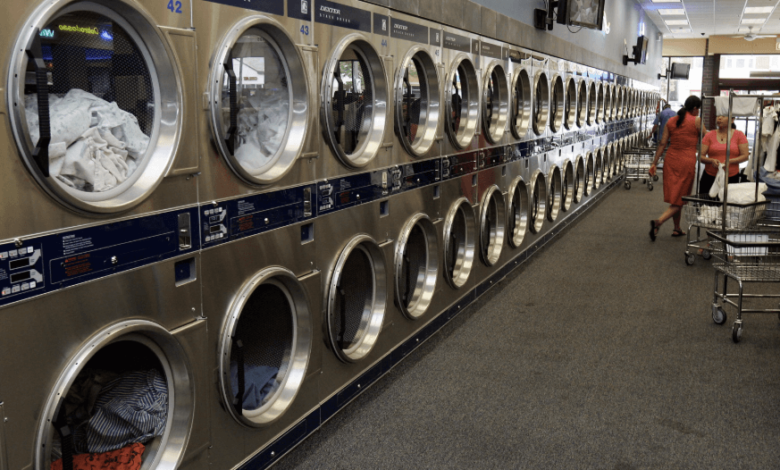How to Choose the Best Washer Manufacturer for Your Industry Needs

Washers may seem like small, simple components, but they play a critical role in the reliability and safety of countless mechanical assemblies. Whether in automotive, electronics, construction, or aerospace industries, washers provide essential functions such as load distribution, vibration reduction, and sealing. Selecting the right washer manufacturer is a key step to ensuring that these components meet your application’s specific requirements with high quality and precision.
This article will guide you through the importance of washers, the manufacturing process, benefits of choosing the right washer manufacturer, factors to consider when selecting a partner, and current industry trends.
What is a Washer and Why Does It Matter?
A washer is a thin, flat ring or disc, usually made of metal or plastic, placed between a fastener (like a bolt or nut) and the surface being fastened. Washers serve several important functions:
- Distribute Load: Prevent damage to surfaces by spreading the force applied by fasteners.
- Prevent Loosening: Special washers help secure fasteners from vibrating loose.
- Seal Joints: Some washers act as seals to prevent leakage of fluids or gases.
- Protect Surfaces: Avoid scratching or deformation caused by tightening fasteners.
Choosing the right washer for your application ensures the longevity and safety of the assembly, making the role of a quality washer manufacturer crucial.
The Role of a Washer Manufacturer
A washer manufacturer designs and produces washers in a variety of materials, sizes, and types to suit different industries and applications. They can supply:
- Standard washers such as flat washers, lock washers, and sealing washers.
- Custom washers designed to precise specifications for unique applications.
- Washers made from various materials, including stainless steel, brass, nylon, rubber, and specialty alloys.
Top washer manufacturers employ advanced manufacturing techniques and stringent quality controls to deliver washers that meet or exceed industry standards.
See also: Using Technology To Find The Perfect Life Insurance Policy
Manufacturing Process of Washers
1. Design and Specification
Manufacturers work with clients to understand the application requirements, including load, environment, and standards. Precise drawings or CAD models are created to guide production.
2. Material Selection
Materials are chosen based on strength, corrosion resistance, temperature tolerance, and chemical compatibility.
3. Production Methods
- Stamping: Most metal washers are stamped from sheets in high-volume production runs.
- Machining: For complex or low-volume washers, CNC machining offers precision.
- Molding: Non-metal washers like rubber or nylon are produced by injection molding or compression molding.
4. Heat Treatment
Certain washers undergo heat treatment to enhance strength and durability.
5. Surface Finishing
Washers may be coated or plated with zinc, nickel, or other materials for corrosion resistance and appearance.
6. Quality Inspection
Rigorous inspections ensure dimensional accuracy, material integrity, and surface quality before packaging.
Benefits of Working with a Reliable Washer Manufacturer
Superior Product Quality
A reputable washer manufacturer provides products that consistently meet tight tolerances and quality standards, preventing premature failure.
Wide Range of Options
Access to diverse washer types and materials allows clients to find the perfect fit for their specific needs.
Customization Capabilities
Experienced manufacturers can develop custom washers tailored to unique dimensions, materials, or performance criteria.
Compliance and Certification
Manufacturers with certifications such as ISO 9001 ensure adherence to international quality standards.
Technical Support
Expert consultation helps clients select the right washers and solve complex fastening challenges.
On-Time Delivery
Reliable production and logistics help maintain project schedules and reduce downtime.
Key Factors to Consider When Choosing a Washer Manufacturer
Industry Experience
Manufacturers with experience in your specific industry understand the unique challenges and standards involved.
Production Capacity
Ensure the manufacturer can handle your order volumes, whether large-scale or custom, low-volume runs.
Quality Control Systems
Look for manufacturers with documented quality management processes and traceability.
Material Expertise
A broad material portfolio and knowledge enable optimal selection for performance and cost.
Innovation and Technology
Use of modern machinery and techniques such as automated stamping, CNC machining, and 3D printing improves quality and flexibility.
Customer Service
Responsive communication and willingness to collaborate throughout the project are vital.
Industries That Rely on Washer Manufacturers
- Automotive: Washers must endure vibration, heat, and corrosive environments in engines and chassis.
- Electronics: Miniature, precise washers support delicate components.
- Construction: Heavy-duty washers resist weathering and structural loads.
- Aerospace: Lightweight and high-strength washers meet stringent aerospace standards.
- Medical Devices: Biocompatible washers ensure safety and hygiene in equipment.
- Renewable Energy: Corrosion-resistant washers enhance the durability of wind turbines and solar panels.
Trends Shaping the Washer Manufacturing Industry
Sustainable Materials and Processes
Manufacturers are adopting eco-friendly materials and reducing waste to meet environmental regulations.
Industry 4.0 and Automation
Smart factories utilize AI and IoT for real-time monitoring, improved quality control, and efficiency.
Additive Manufacturing
3D printing accelerates prototyping and enables complex washer designs.
Advanced Coatings
New surface treatments improve corrosion resistance and reduce friction.
Real-Life Example: Washer Manufacturer Enhances Bridge Construction
A civil engineering firm required washers capable of withstanding harsh weather and heavy loads for a major bridge project. Partnering with a trusted washer manufacturer, they developed:
- Heavy-duty stainless steel washers with special anti-corrosion coatings
- Oversized flat washers to distribute load over larger surface areas
- Lock washers to prevent loosening under vibration
The collaboration ensured structural safety and extended the lifespan of the bridge.
Conclusion
The role of a washer manufacturer goes far beyond producing simple metal rings. They are essential partners in delivering precision, quality, and customized fastening solutions critical to the success of modern engineering and manufacturing projects.
By choosing a manufacturer with proven expertise, robust quality systems, and a commitment to innovation, businesses can secure high-performance washers that enhance safety, durability, and efficiency across diverse industries.




